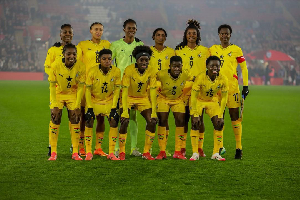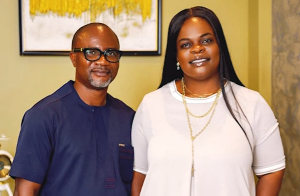Madam Shani Cooper-Zubida, Israeli Ambassador to Ghana, Liberia and Sierra Leone, has commended the government for the effective and efficient steps towards ensuring the safety of residents in Ghana at the height of the COVID-19.
“At that time, many people in other countries were traumatised because of the COVID-19 pandemic but I and my family felt safe in Ghana. The government took good care of its citizens and guests like me,” she said.
Madam Cooper-Zubida said this when she paid a farewell courtesy call on the management of the Ghana News Agency (GNA) after a three-year duty tour.
Mrs Beatrice Akua Asamani-Savage, the Director of Editorial, GNA, and her team welcomed Madam Cooper-Zubida and her entourage.
Madam Cooper-Zubida said her short stay in Ghana, which was marked by a warm hospitality on arrival, had been memorable and that so much had been achieved in the areas of education, entrepreneurship, trade and health through the bilateral relations.
She said the two countries had worked together in the areas of technology transfer, education, real estate, agro development, exchange programmes, while Israel was complementing the efforts of Ghana in boosting agriculture.
“Our approach is not to impose technology on a country but we work with experts in that country to develop the solutions. Currently extension officers across Ghana were undertaking online tailored programmes designed by the Agriculture Ministry and their counterpart from Israel to help boost crop production,” she said.
Israel, she said, had trained more than 150 agricultural students through 11 month-long practical trainings in the ‘Agrostudies’ programme.
Madam Cooper-Zubida stated that the Israeli Trade and Economic Mission continued to encourage more investments and more business between the countries in agriculture.
“One of such was the GHrowIL Agriculture conference that brought to Ghana 18 Israeli companies to meet key players in the Agriculture sector of Ghana for business. The great partnerships forged at this event have led to bilateral business agreements in diverse areas of agriculture technology,” she said.
The Ambassador noted that, during her tour, she made Ghana a priority in the Isreali Foreign Ministry programing, resulting in the opening of new economic mission, pushed to sign more agreements and had resulted in the rise of Ghanaian issues in Israeli public sphere.
Madam Cooper-Zubida recounted that Israeli investors were eager to take advantage of Ghana’s business-friendly environment to invest in the economy – give jobs and create wealth for the people.
She noted that the Embassy held the maiden edition of the Israel Green Innovation Competition for Start-ups and trained senior officials in the innovation field, to make Ghana a conducive environment for thriving innovators in Africa.
Ghana and Israel had had successful bilateral relations, she said, adding that there had been high profile visits from Israel as well as cooperation in various areas, which had been of mutual benefit to both countries.
Madam Cooper-Zubida said the Ghana-Israel Business Chamber, University of Ghana Medical Centre and scholarships to Ghanaian students were some of the benefits of Ghana and Israel bilateral relations.
More than 2,000 Ghanaian students had benefited from MASHAV (Israel’s Agency for International Development and Cooperation) training programmes since 1958, she said.
Touching on the effects of the illegal small scale mining on water bodies, Madam Cooper-Zubida said the Embassy was collaborating with government to hold a roundtable later this month on: “Water Treatment after Galamsey,” where Isreal would bring its expertise on board to assist Ghana improve on the turbidity of its water bodies.
She commended the Ghana News Agency for remaining the hub of balanced, credible and unbiased news in the media landscape and urged it to continue to ensure that the voice of the voiceless were also heard though its wide coverage.
Mrs Asamani-Savage, on her part, said the Ghana News Agency would continue to be fair and balanced in its reportage and would not compromise on credibility as it pursued its core objective of national unity and development.
She said the GNA was the first national wire service in sub-Saharan Africa established on the 5th of March, 1957, the eve of Ghana’s Independence, by Dr Kwame Nkrumah, the first Prime Minister and President, to disseminate truthful, unbiased news and to tell the African story from an African perceptive.
She said in the midst of the proliferation of news media channels, the GNA was still taking the commanding lead in news dissemination to its growing list of subscribers, both local and global, through improvement in technology and innovation, and staff commitment to work.
General News of Saturday, 5 June 2021
Source: GNA













